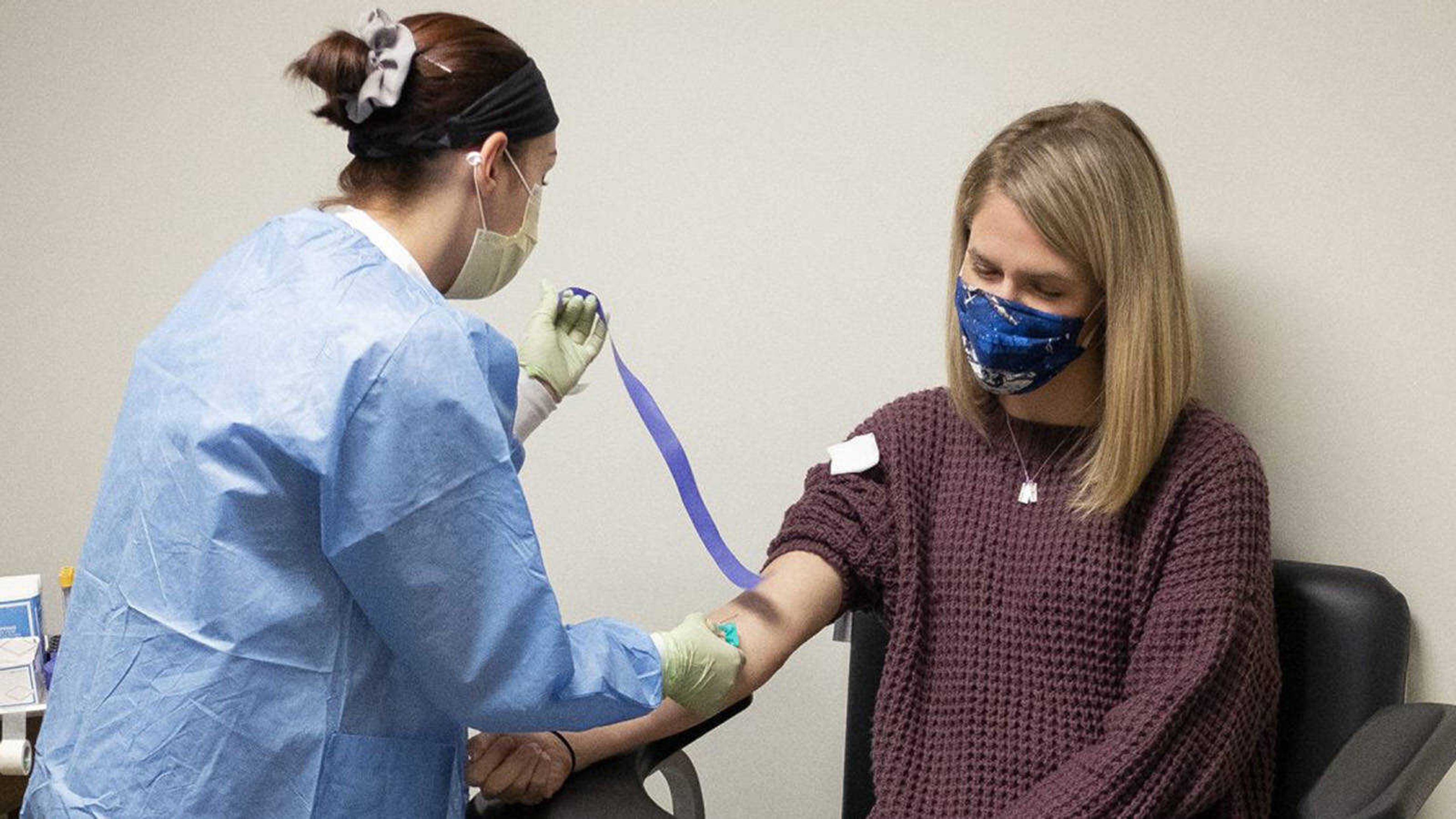Local study indicates hundreds could have had coronavirus
Hundreds of Cape Girardeau County residents may have had COVID-19 earlier this year and most of them didn’t realize it. That according to data released Thursday by the Cape Girardeau Public Health Center, which studied blood samples collected last week from 1,845 county residents in search of coronavirus antibodies...
Hundreds of Cape Girardeau County residents may have had COVID-19 earlier this year and most of them didn’t realize it.
That according to data released Thursday by the Cape Girardeau Public Health Center, which studied blood samples collected last week from 1,845 county residents in search of coronavirus antibodies.
Preliminary study results were presented to the Cape Girardeau County Commission, which paid for the project using some of the county’s federal Coronavirus Aid, Relief, and Economic Security (CARES) Act funds.
Sixteen of the 1,845 study participants were found to have coronavirus antibodies, meaning that for every 1,000 county residents, 8.7 of them may have had the coronavirus. With a county population of nearly 79,000, it’s possible more than 650 county residents could have potentially had COVID-19 at some point in the past few months.
The study participants, each representing various demographic groups within the county, were chosen from among almost 3,800 people who took an online survey conducted by county health officials to determine their eligibility to have blood drawn for the antibody testing.
“An antibody test will find people that have had the virus but maybe didn’t know it or didn’t recognize they had it,” said Dr. John Russell, medical director of the county health center in his presentation, adding “99% of the population in Cape County is still vulnerable” to it.
Cape Girardeau County had an estimated population in 2019 of 78,871, of which 61,341 were age 15 or older, so the 1,845 study participants represented about 3% of the county’s adult population, enough to be statistically valid for the study.
Of the 1,845 blood samples collected last week from study participants, 1,829 were negative for coronavirus antibodies, meaning those people have never had COVID-19. Of the 16 positive test results, 14 were among people age 55-64 and 65 and older.
“The bottom line of what we found out is that in Cape County if you’re 55 years old or older you’re much more likely to have had this disease and much more likely to catch it,” Russell said.
He explained the number of study participants in the 35-44 age range was significantly higher than the number of participants in either the 55-64 or 65 and above groups, yet there was only one positive antibody result in that younger group.
“So the ratio of people that have had the disease in the ‘55 and older’ group is significantly higher than it is if you’re younger,” he said.
Russell reminded the commissioners antibody tests can detect whether a person has had COVID-19, but not whether someone has an active virus.
“I want to make sure everybody understands the difference between the PCR (polymerase chain reaction) test and the antibody test,” Russell said. “PCR is a test for the actual virus within a person’s nose and a positive PCR test says you have the virus, you have the disease. An antibody test tells us if you’ve had the disease, and that’s past tense.”
Study participants will be tested again in July to see whether anyone who had negative antibody test results become infected with COVID-19 now that the state’s “stay-at-home” order has been lifted and interactions among people increase. The retesting will also indicate whether any of the 16 positive antibody test results from the first round show up as negative in the second round.
“In other words, we will start to get an idea of how long antibodies hang out, which may tell us the likelihood of seeing a recurrence of the disease,” Russell said.
Having an idea of what to expect in terms of a recurrence, or a “second wave,” will help medical authorities and government officials plan their response to a health crisis many say will continue, to one extent or another, for several more months or longer.
“I wish I could have come here and said ‘It’s all over’ and we can say goodbye to it, but we’re not anywhere close,” he said. “This bug is going to be around for quite a while.”
The study is a partnership among the County Commission, the health department, SoutheastHEALTH and Cross Trails Medical Center.
“The fact that we drew nearly 1,900 samples of blood, processed them and got results in essentially five days is pretty remarkable,” Russell said.
Do you crave business news? Check out B Magazine, and the B Magazine email newsletter. Check it out at www.semissourian.com/newsletters to find out more.
Connect with the Southeast Missourian Newsroom:
For corrections to this story or other insights for the editor, click here. To submit a letter to the editor, click here. To learn about the Southeast Missourian’s AI Policy, click here.










